






Blue Fleet Group has over 60 years of experience in ship-brokering, chartering and ship management. With the third generation of the Arsenal FC-loving family now navigating new waters in the ship-owning business, the company’s future looks bright. Chartering Manager Cherif Khoury spoke to Andy Probert about the venture’s desire to maintain its premier league position in volatile times.
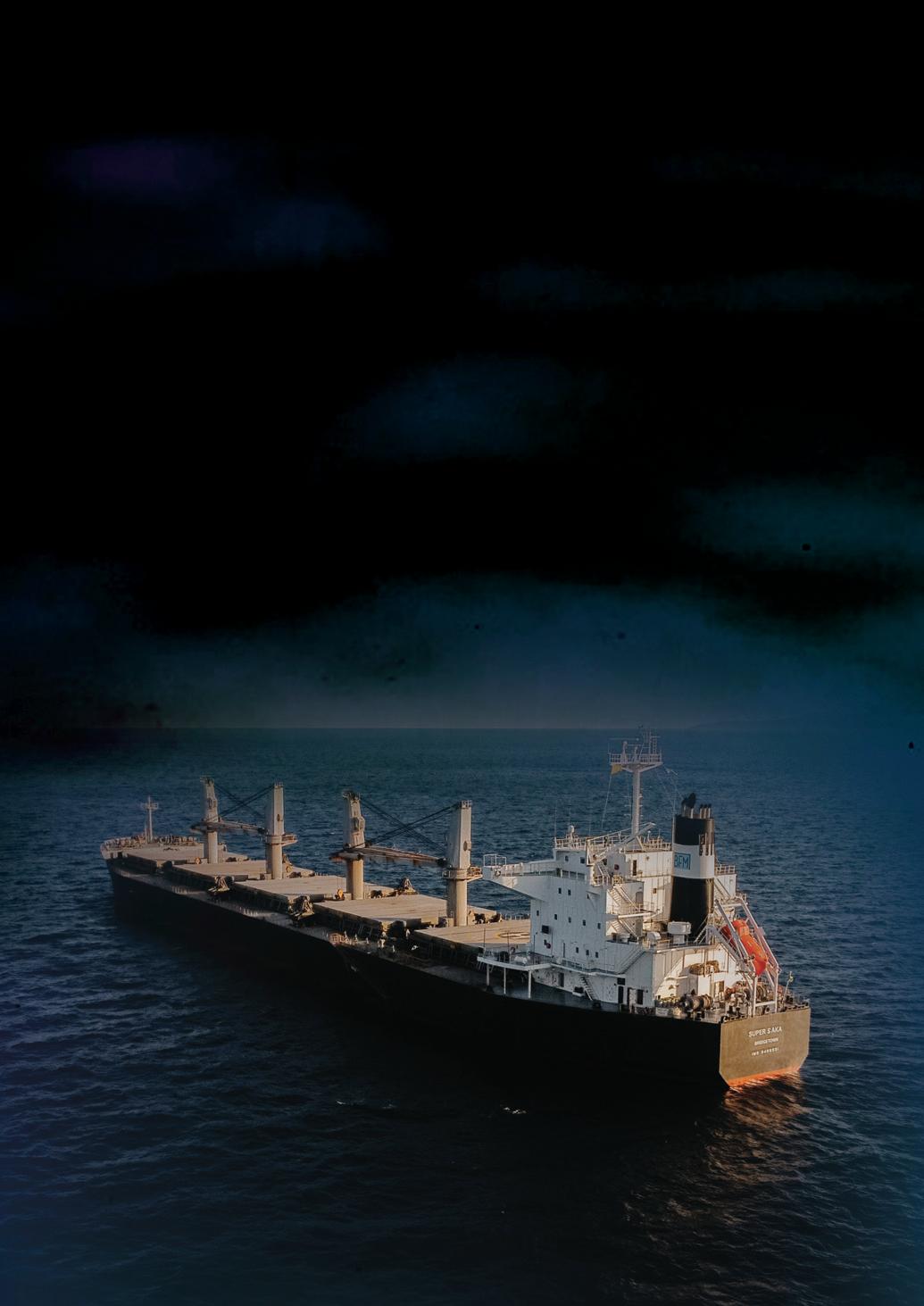
Filled with colourful tales of the family’s maritime past, Chartering Manager Cherif Khoury would inevitably step on board the family business and continue t he tradition his grandfather Edward began with the opening of Lebanon’s first shipping agency in 1961.
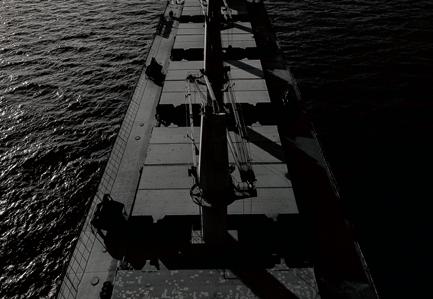
Mr Khoury’s father, Roy, went on to establish his name in the ship managing and chartering space and operated 16 dry bulk carriers. Ultimately, Blue Fleet Group was founded in 1996 and now, from its Lebanon and Greece offices, manages 36 vessels with deadweights ranging from 10,000 to 56,000 tonnes, carrying more than three million tons of dry cargo annually, internationally.
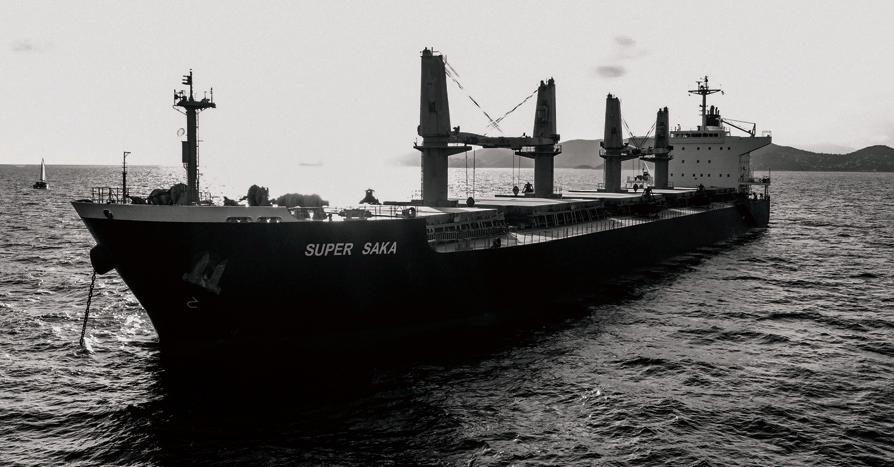
Blue Fleet has grown through maintaining close relationships with several Middle Eastern ship owner clients over the last three decades.
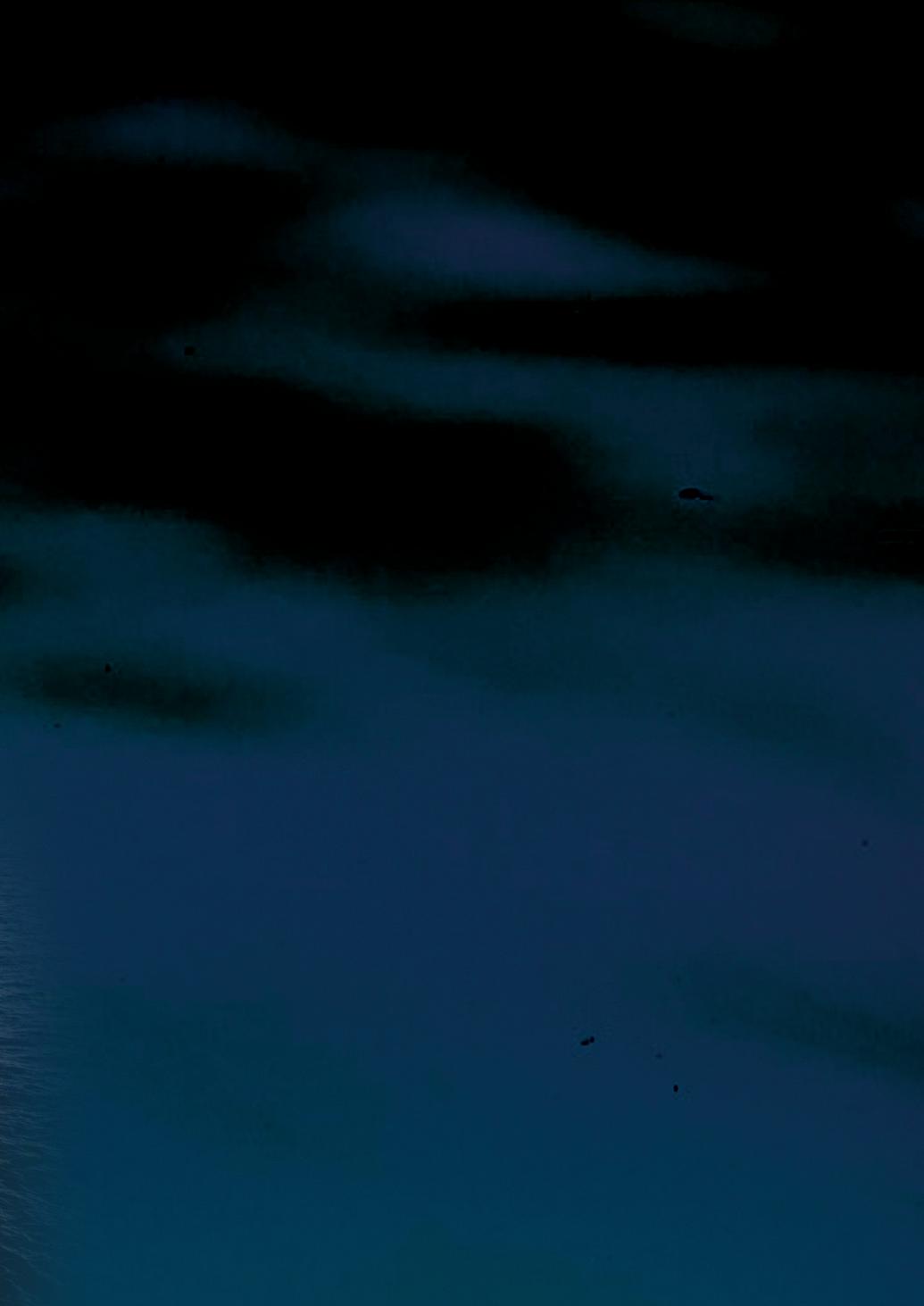
Too young to remember his pioneering grandfather, who died when Mr Khoury was just two, the third generation is intent on maintaining that indelible link with the sea. “From the age of six years, I was vis iting the company office and became enthralled with the matching of cargo and ships,” said Mr Khoury. “From that moment, I knew I wanted to be in shipping.”


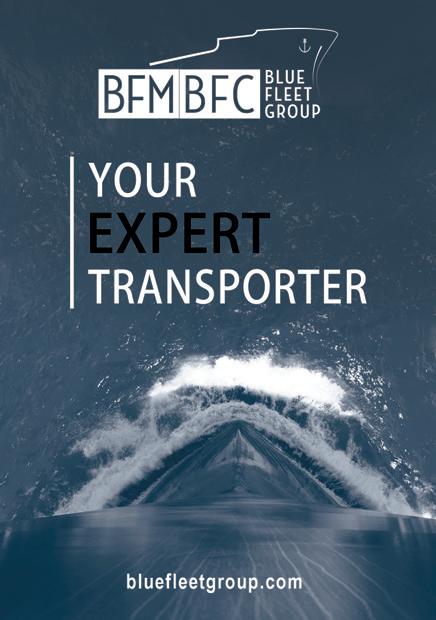
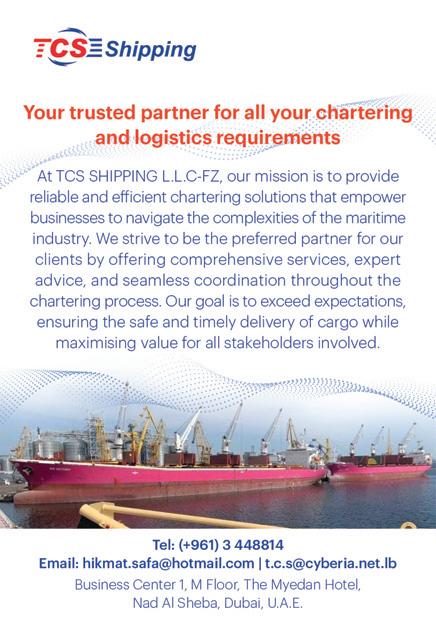

That dream came true when he joined the business in 2012, having completed his bachelor’s degree in maritime business and maritime law in Plymouth, and his master’s in shipping, trade and finance at London’s CASS Business School.
Following a decade’s experience, Mr Khoury and his father decided in 2022
to go to the next level: they became the owners of four Supramaxes of 55,500 tonnes dwt and two Handymax vessels up to 36,000 dwt to add to their 30-strong managed and chartered fleet.
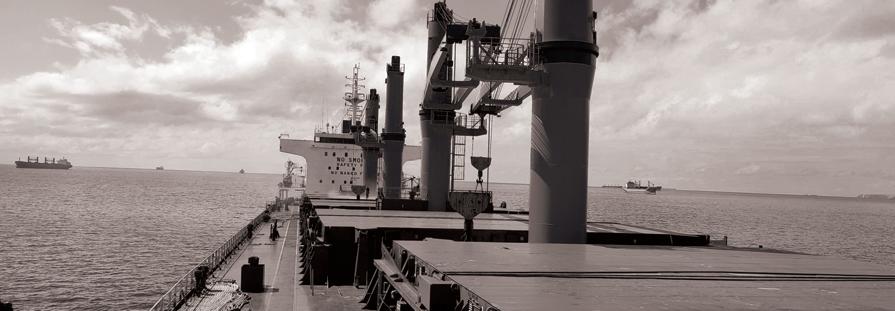
Brought up on a diet of top-flight football courtesy of Arsenal back in London during his formative years, Mr Khoury,
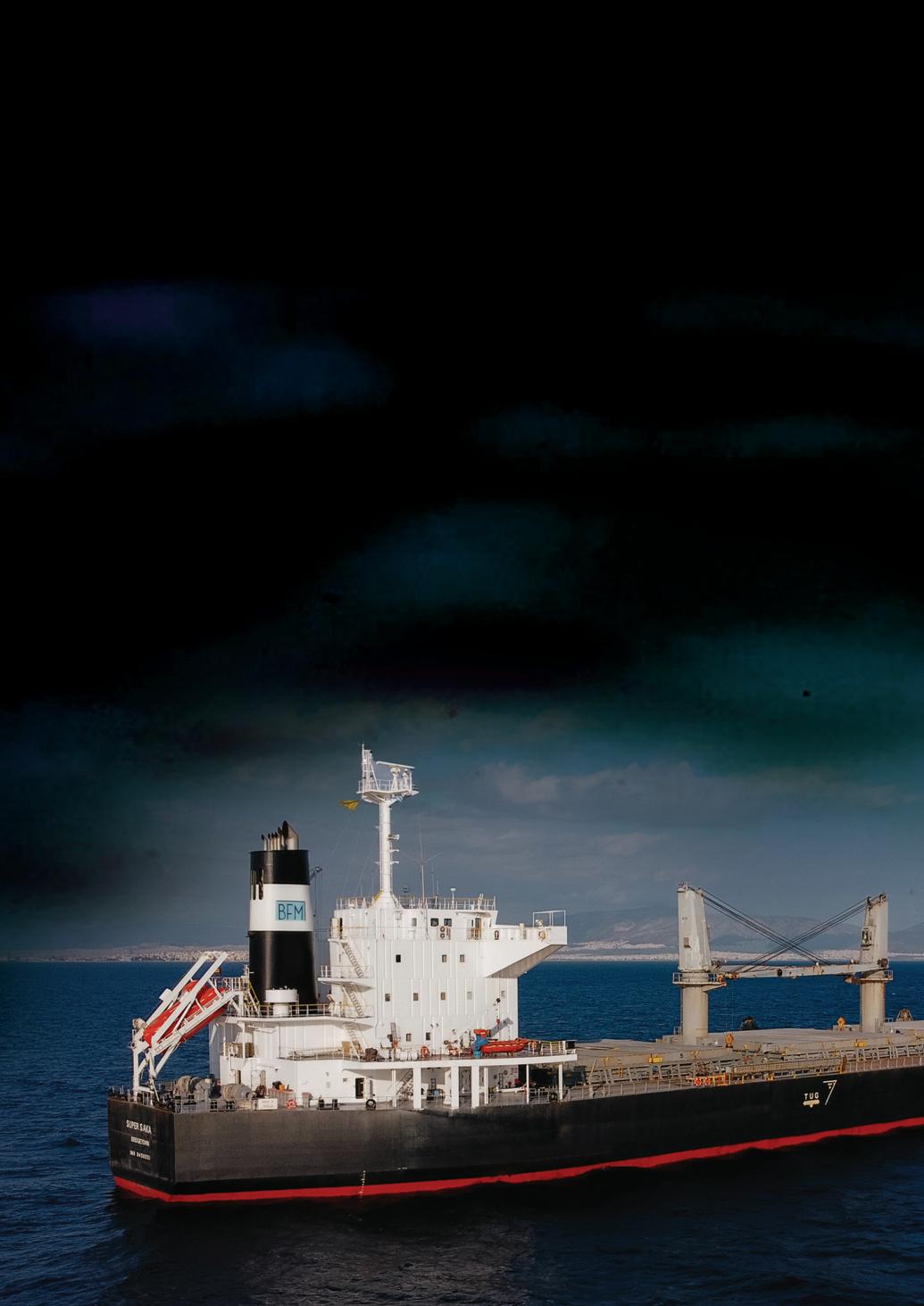
along with his father, named most of their vessels after former and present stars of the Arsenal team. Hence Saka, Bergkamp, Ødegaard, Henry and Martinelli, as well as Gunner.
The entire fleet, comprising eight Supramaxes and the rest Handysize, is operational globally on the spot market.
“We have a special relationship with a Lebanese trader who imports rice into the Mediterranean region. We transport around one and a half million tonnes of rice in bags or slings a year, either utilising our vessels or other ships,” said Mr Khoury. Sugar, grains, soya and corn are also popular dry cargo shipments on trade routes, including the Ukraine grain corridor.
“For example, Ødegaard is trading coal from Southeast Asia to China; Saka and Henry are discharging rice in West Africa,” Mr Khoury explained. “Bergkamp is taking grain from Ukraine to China, and Martinelli is currently loading in Odesa (Ukraine). Gunner is discharging grains in Yemen from Argentina.
“As our vessels are trading in some of the world’s hot spots, such as Yemen, Ukraine and West Africa, Blue Fleet is a wellknown client for extra war risk insurance.”
The Group has a diversified approach to business, including ship managing some of the vessels. Its chartering business is a particular expertise, with ship owners and
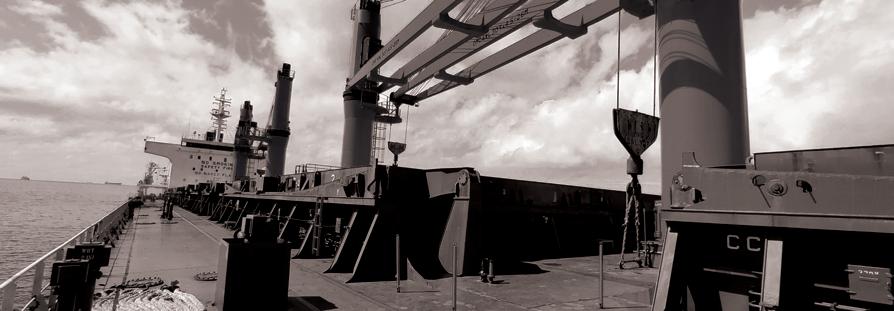
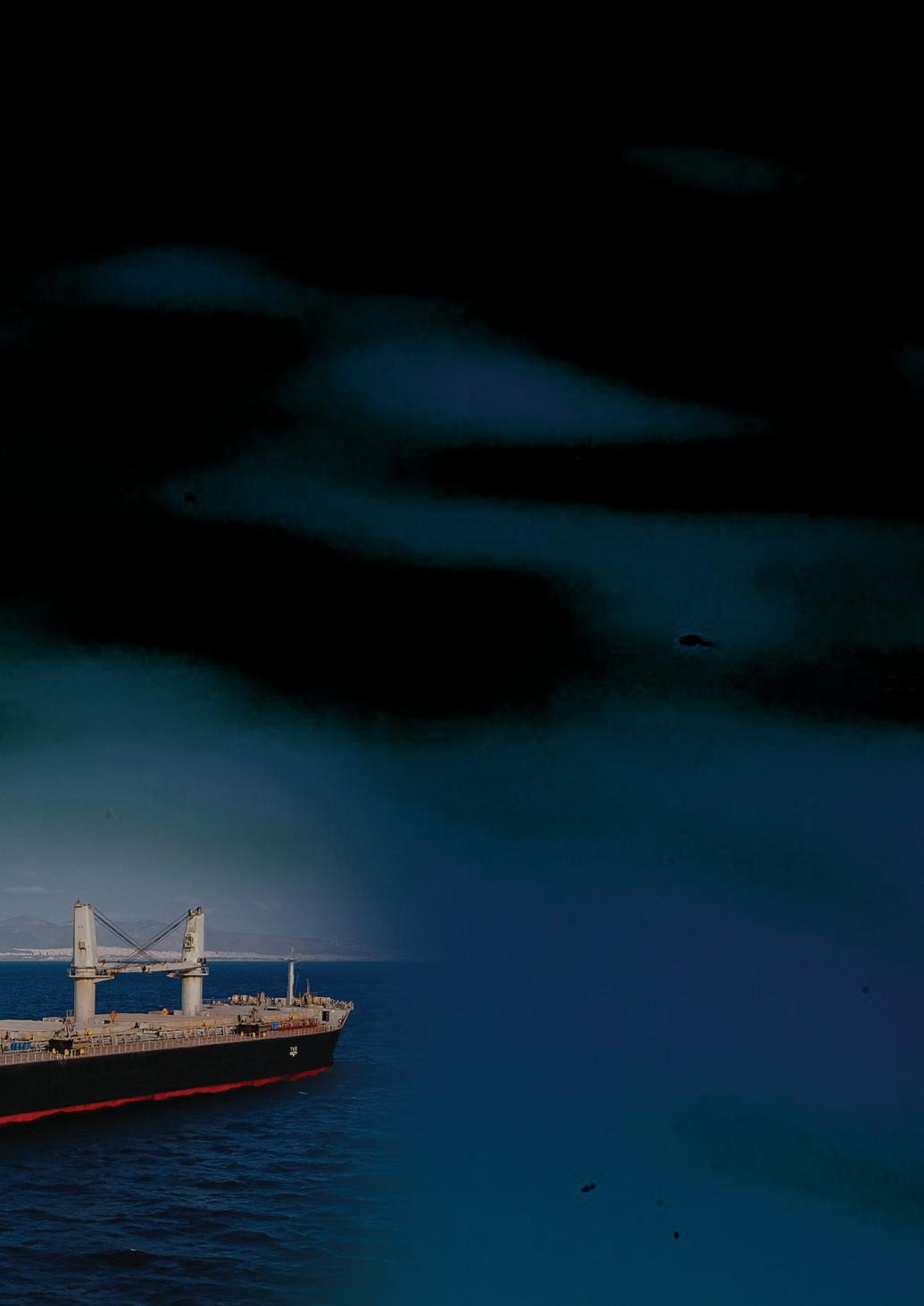
direct charterers entrusting their cargo to the company.
“Such substantial foundations have allowed the Group to work on an exclusive basis and be at the disposal of charterers who we have worked with for a long time,” said Mr Khoury.
Over the years, the Group, a member of the Baltic Exchange of London, has closely monitored the ship brokering sector, gathering information from its associates, first-class charterers and co-brokers. As a result, it can adapt, make prompt decisions and rapidly deploy the fleet.
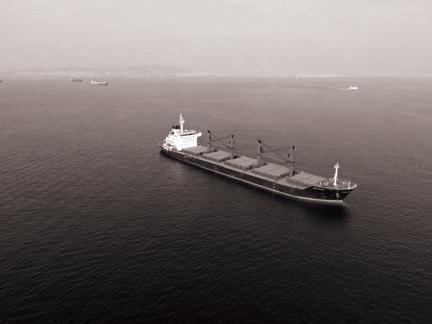
Mr Khoury said its crews are Middle Eastern, who he described as ‘hard-working and tenacious’. The Group is also a member of BIMCO, one of the largest international
shipping associations representing 60% of the world’s merchant shipping tonnage, with members in 130 nations.
“I know financing in the maritime sector can be a headache for shipowners, but for Blue Fleet, it was relatively smooth when we purchased our ships,” Mr Khoury explained. “We utilised three global financial houses, even though we are located in Lebanon.
“Strangely, given the Lebanese shipping i ndustry, its culture and country, the biggest challenge we faced was hiring people. There are many ship owners here, but not the potential to find staff for crews and chartering.
“It’s not the inability of the Lebanese people to perform such jobs, but the lack of knowledge that surprised me. However, as Lebanese, we are looking to raise skills more as we want to recruit locally, help them and support the economic situation.”
“Now, as shipowners, we are utilising clients, as we have strong bonds in the rice market and with charterers and traders. Having vast experience in the chartering sector gives us a distinct edge in the market.
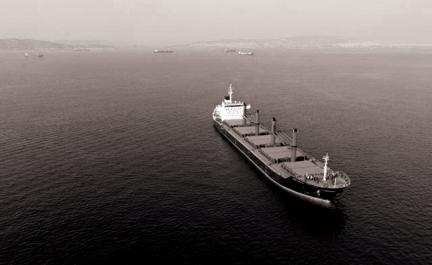
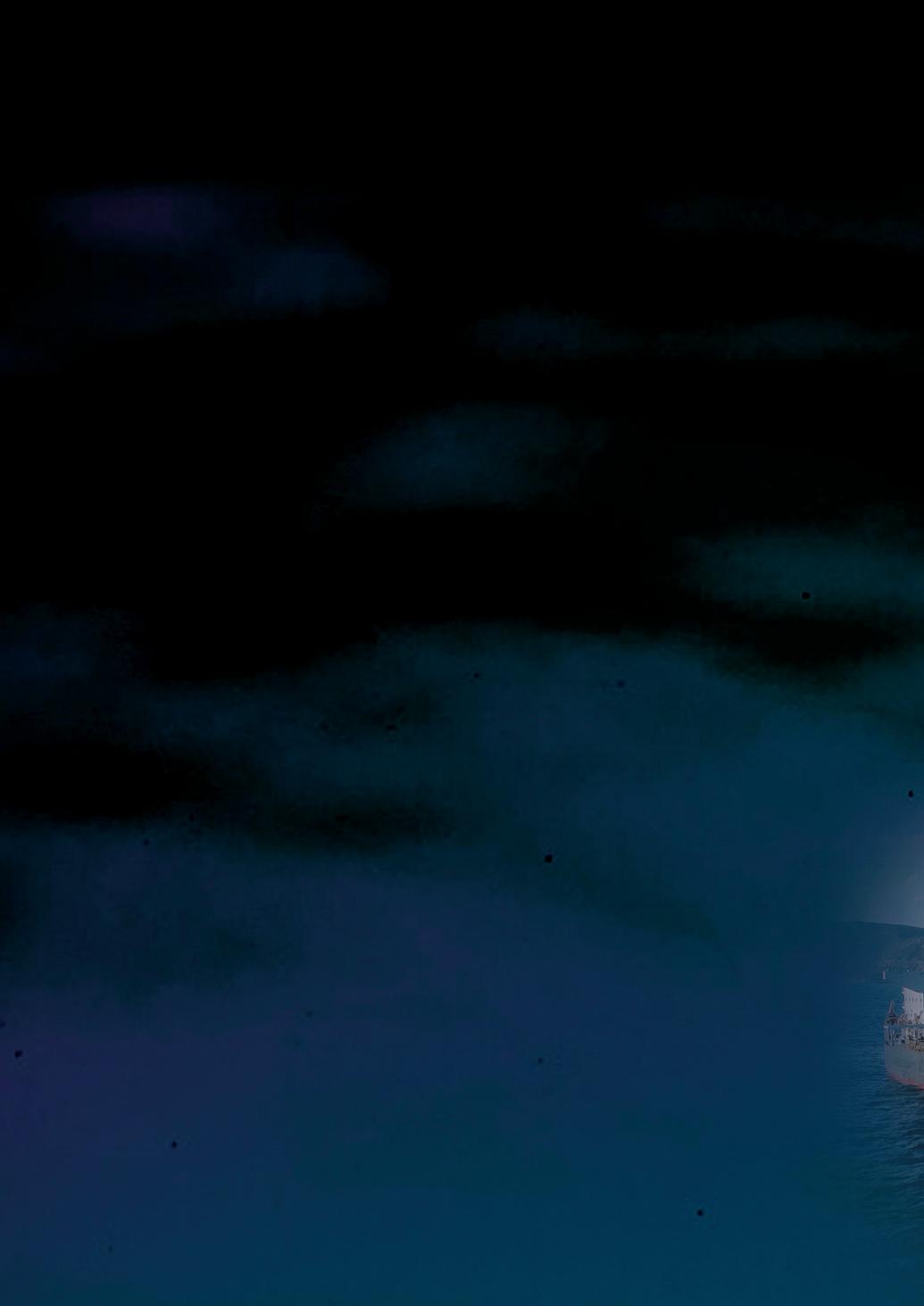
“We value quality over quantity in relations, which means we work only with trusted people in business. The relationships flourish and are adaptable to each other’s demands and needs. That is what we value.”
The company welcomed advances in green energy and was looking into collapsible water sails to drive vessels forward and new anti-fouling coating concepts to protect its ships.
Blue Fleet has enjoyed a 10% uplift in business growth in recent years due to its proactive approach to the spot market and full fleet utilisation. It has doubled annual tonnage from 1.5 million in 2012 to over three million in the past three years.
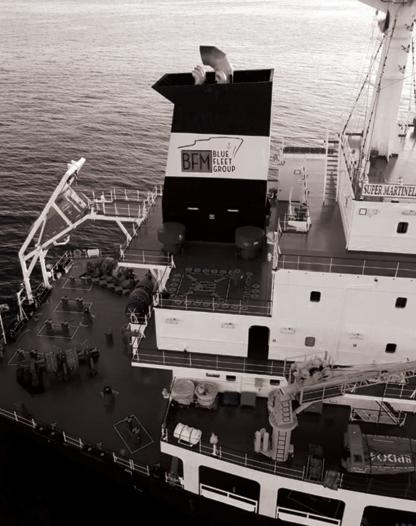
With that in mind, father and son are now weighing expansion options and looking to step into the Ultramax market in the next 12 months. “I believe it is a fascinating segment,” Mr Khoury said. “We have done the research, and the OPEX is comparative to within about 5 per cent of a Supramax vessel. The difference being that as you can load more, there’s greater profit margin potential.

“The desire to be a ship owner was driven by my father’s tales of past shipowning adventures, but also the fact that we do so much of the work for ship owners,” Mr Khoury concluded. “We know the market, the traders, the charterers and the supply chain.
“It’s a 24-hour job, but I enjoy it and have no regrets. Blue Fleet is well-positioned for the future. It has a great team, and each member works hard to drive the company forward in a volatile market.”
